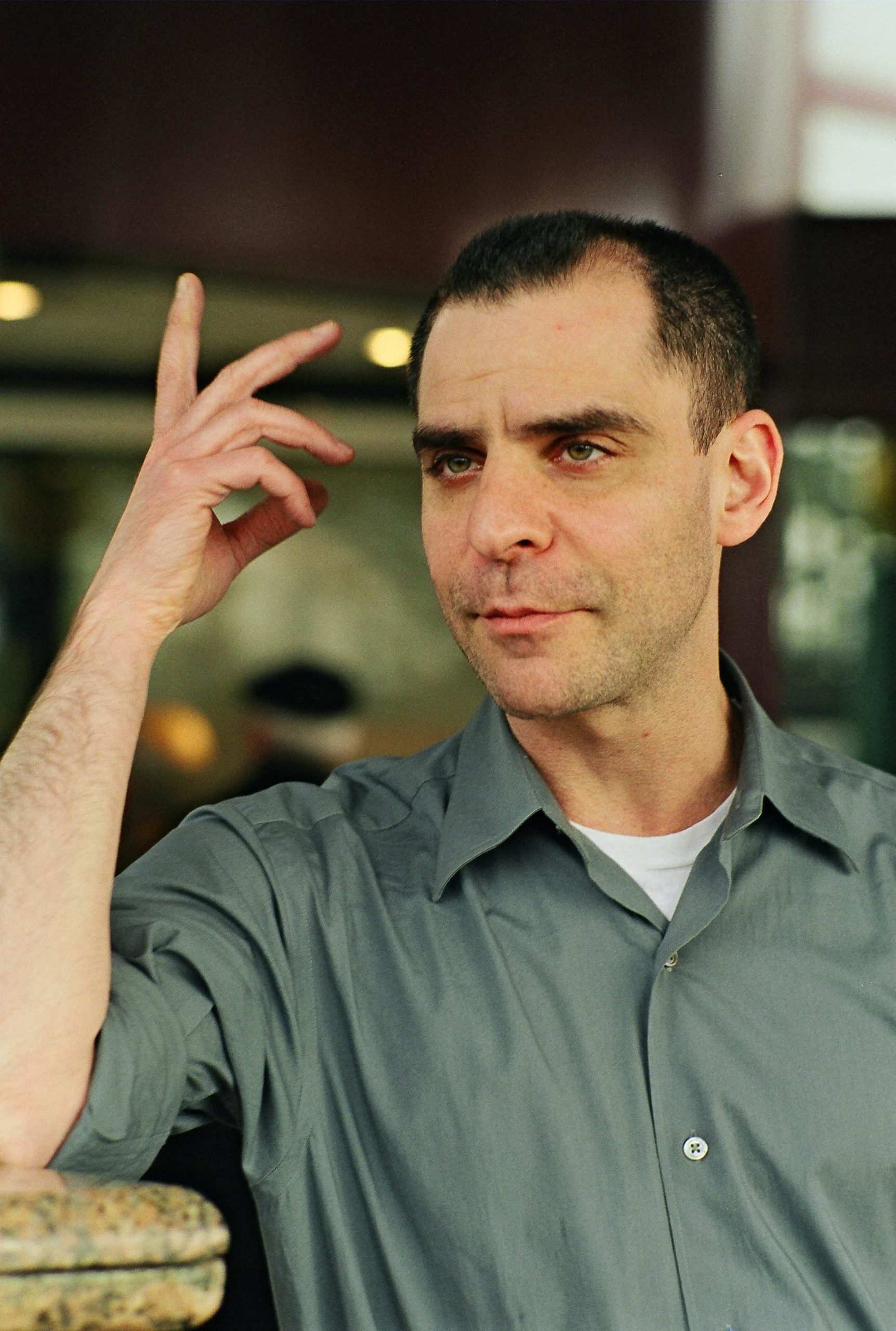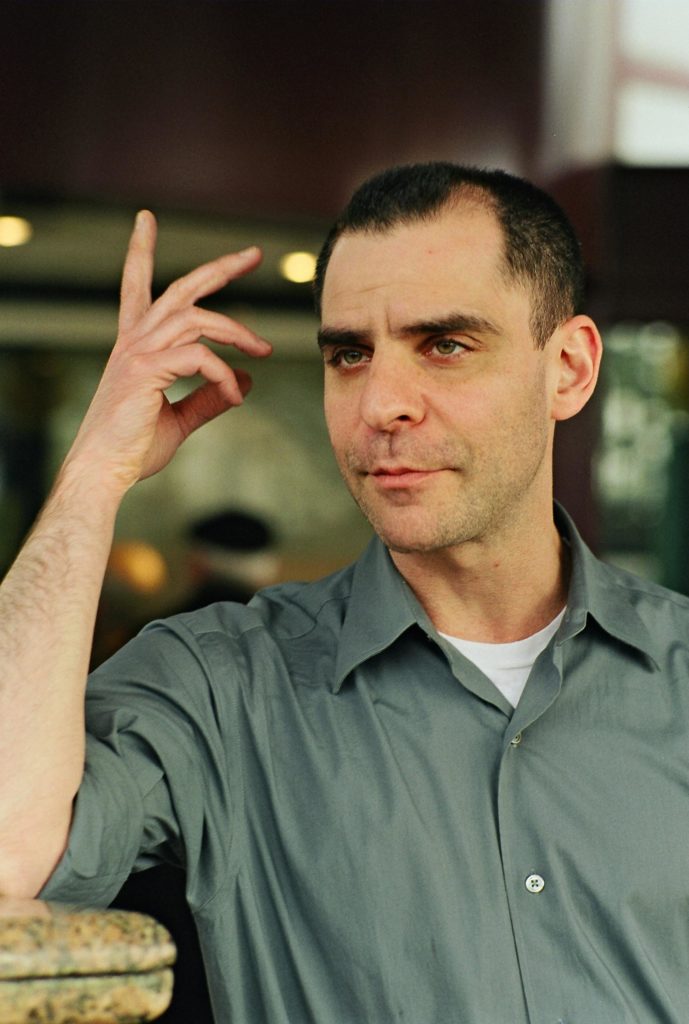

DAVID RAKOFF
Cool can cut like a knife.
Or, in the case of Canadian-born but New York City-bred humorist David Rakoff, like a guillotine.
There’s a passage in “I Can’t Get It For You Wholesale”, Rakoff’s witheringly funny exposé of the Parisian fashion scene and its odd excesses, that cements forever his place in the Compendium of Cool. When the legendary German designer Karl Lagerfeld dismisses David with the unkind observation, “What can you write that hasn’t been written already?”, Rakoff’s imagined reply is the kind of cool that can’t be seen head-on; you have to avert your gaze from it, wincing, one hand raised to shield you from the brilliance flashing from its falling blade:
He’s absolutely right, I have no idea. I can but try. The only thing I can come up with at that moment is that Lagerfeld’s powdered white ponytail has dusted the shoulders of his suit with what looks like dandruff but isn’t. Also, not yet having undergone his alarming weight loss, and seated on a tiny velvet chair, with his large doughy rump dominating the miniature piece of furniture like a loose, flabby, ass-flavored muffin overrisen from its pan, he resembles a Daumier caricature of some corpulent, inhumane oligarch drawn sitting on a commode, stuffing his greedy throat with the corpses of dead children, while from his other end he shits out huge, malodorous piles of tainted money. How’s that for new and groundbreaking, Mr. L.?
I mean…just…
GodDAMN.
Rakoff—whose tragic death in 2012 robbed the world of the sort of Swiftian satirist so desperately needed at today’s rancid buffet of edible Élite—was cool in a way he would deny with such eloquent self-flagellation as to make him cooler still; no one could insult David Rakoff the way he could attack himself. “The central drama of my life is about being a fraud, alas,” he tells us in the opening essay of his fist collection, Fraud. “That’s a complete lie, really; the central drama of my life is actually about being lonely, and staying thin, but fraudulence gets a fair amount of play.” And yet there is nothing more genuine, no more vibrant a virtuoso, than Rakoff at work. His prose plucks its readers from the page and wheels them, squealing with delight, in ever-widening gyres of breathless satisfaction, his writer’s eye as steely-sharp as it is jovially jaundiced:
With disturbing regularity, the end of the work day found us at the old Monkey Bar, the Dorset Bar, the Warwick Bar, all attached to serviceable and somewhat down-at-heel hotels. Midtown Manhattan used to be full of just such comfortably shabby establishments where career waiters with brilliantined comb-overs and shiny-elbowed jackets might serve marvelously cheap albeit watery drinks, along with free snacks: withered celery sticks; pretzel nuggets accompanying a cheese spread of a color that in nature usually signals “I am an alluring yet highly poisonous tree frog, beware!”; chicken wings kept barely, salmonella-friendly warm in a chafing dish over a Sterno lamp; and a bounty of unironic, faux Asian, pupu platter dough cylinders, pockets, and triangles that were—oh glory!—fried. Dinner and forgetfulness all for ten dollars.
Reading Rakoff–or better still, listening to him narrate his own work on audiobook or in one of his many appearances on “This American Life”–is an act of hopefulness in an increasingly absurd world, his prose a place to find shelter from our shared exhaustion with…well, everything. He was icily cool in his critiques of everything from cryogenic immortality to the “snarling, saw-toothed, ammoniac” smell of chicken shit, but it was the endless warmth of his humanity that made David Rakoff such a gift.
~ Clay D. Major
